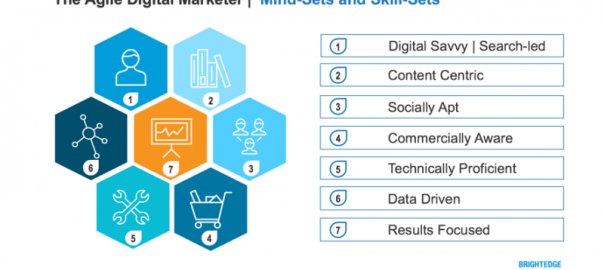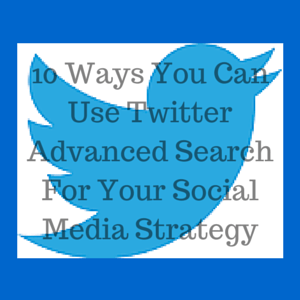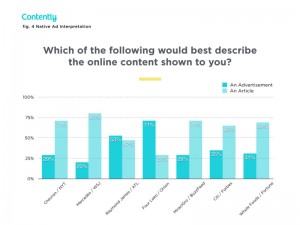Are you an agile marketer? Jim Yu discusses the convergence of digital marketing disciplines and the hybrid skills that you’ll need to thrive.
 As the digital marketing industry matures, digital channels have converged. As customers have become more technologically savvy, they have become increasingly channel-agnostic. They readily use search and mobile channels, social media, email and display to engage with their key audiences — and they expect their organizations to be present and active on these channels, too.
As the digital marketing industry matures, digital channels have converged. As customers have become more technologically savvy, they have become increasingly channel-agnostic. They readily use search and mobile channels, social media, email and display to engage with their key audiences — and they expect their organizations to be present and active on these channels, too.
Companies are increasingly noticing the importance of providing a consistent brand experience across all of the different platforms and integrating their various specialties. According to a 2014 Experian Marketing Services survey, 80 percent of marketers worldwide plan to run cross-channel marketing campaigns, and 88 percent of those planned on integrating three or more channels.
By breaking down the barriers that separate the different areas of marketing, companies are well-equipped to act within the digital sphere with consistent messaging, positioning and overall customer experience.
Although brands themselves are beginning to recognize the importance of working in a cross-channel paradigm, finding marketers who have the hybrid skills to fill these roles remains a challenge. One recent survey found that there was a 29-percent talent gap in mobile marketing and a 37-percent gap in analytics.
As the gap grows, professionals are beginning to realize that the way forward in the industry is to develop their skills. Adobe research found that 40 percent of marketers wanted to reinvent themselves as marketers, but less than half — only 14 percent — knew how to do that.
For marketers to succeed in this competitive, converged media environment, they should possess a few key characteristics. Developing these mind sets and skill sets can help to further their professional careers and empower them to provide a greater service to their brands.
These hybrid marketers who can reach across specialty borders are like glue, bringing the entire marketing department together.

1. Digitally savvy, search-led
Despite the importance of traffic sources like email and social media, organic search alone accounts for more than half of the traffic you will see on your site, according to our research. Marketers need to understand the importance of search and how it works together with other forms of marketing.
Content, social media, search and digital marketing all work together to promote and drive traffic and engagement towards websites.
Marketers who want to improve their sophistication in search should focus on developing their SEO skills. They should understand topic and keyword research, as well as how to perform basic optimization. These articles and guides from Marketing Land can be a great place to get started.
2. Content-centric
Content is digital, and digital is about content. Marketers should fully understand content’s pivotal role at the heart of a digital strategy.
Furthermore, it’s important to understand the relationship between content and PR, as well as between content and sales. Content helps shape the reputation of brands, impacting brand reach, share of voice and public perception.
Not only does this overlap with the goals of PR, but — considering that well over three-quarters of people search online before making purchases — content also will impact how many customers enter the sales funnel for a particular brand.
Companies, however, must first gain the attention of their prospects. A Microsoft study found that people now have an average attention span of about eight seconds, less than a goldfish’s. Not only do people have short attention spans, but the internet offers them seemingly limitless information.
Content remains the cornerstone of any effective online marketing strategy, but brands must be able to take their content to the next level. They need to be able to create highly engaging, valuable content that people want to read.
The ability to write — along with the skills involved in understanding content and context — is now necessary.
For those interested in improving their content strategy and their writing, this guide from Convince and Convert can help you get pointed in the right direction.
3. Socially apt
Being socially apt requires skills on multiple levels. You want the members of your different digital marketing teams to be able to work well together and communicate effectively.
At the same time, your marketers need to be able to explain and collaborate with professionals in other positions within the organization. This means understanding how to explain concepts and present ideas to sales teams and C-level executives, for example.
Externally, your marketers also need to understand how to communicate effectively with the customers they interact with online. They must adopt a customer-centric system that helps them create an excellent user experience from the first moment that new prospects interact with the brand.
Building these types of skills within your organization needs to occur from the beginning. You want to focus on hiring people who not only have the skills that their position requires but who also fit in with the culture you’re working to cultivate.
This will help improve employees’ ability to work together. Regularly holding team-building exercises and opportunities for interdepartmental cooperation and collaboration also can help take down barriers.
When it comes to external communications, the organization as a whole should develop and implement customer-centric paradigms and processes. Educate employees about how to serve customers and provide them with an optimal experience, and reward those who provide excellent customer service.
4. Commercially aware
Efficient marketers are able to understand the needs of the business, as well as the desires of the customers, and then take these factors and translate them into an effective marketing strategy.
The ideal hybrid digital marketer will also be very familiar with the product itself. He or she needs to have sales skills and a strong understanding of what the business has to offer customers.
This will empower them to work directly with customers as they interact with them online. They can then improve the customer experience, since there will be fewer delays and less confusion when it comes to communicating with the brand.
Provide your marketers with regular opportunities to use and experience your products and services. Let them experiment with the offerings, so that they feel comfortable with what they are selling to their prospects.
5. Technically proficient
The importance of technology in modern marketing is clear everywhere. Technology drives everything from content management to email automation.
Marketers should be proficient with the digital technology stack that their organization uses. Often this stack will include platforms such as a content management system, customer relationship management software, optimization or SEO platforms, marketing automation and analytics.
While these marketers should be familiar with the various tools, they should have the cross-channel digital marketing insight to know when they can handle tasks themselves and when they need to bring in specialists.
It also can be valuable for marketers to have at least a basic understanding of site technology. For example, when marketers know basic code, they can make site modifications without having to involve other departments every time, speeding up the process. And they can push their creativity further, helping them stay at the forefront of their industry.
Brands themselves can also host trainings for employees to make sure that everyone understands how to use the organization’s technology stack.
6. Data-driven
By 2020, we are expected to hit 44 zettabytes of data. The sheer quantity of information that will be available to marketers will be staggering, and prepared marketers will know how to use it.
With this incredible growth of the digital ecosystem, brands cannot rely on gut feelings or guesses when it comes to creating an effective marketing strategy. Data is the source of digital marketing truth, and this is key to understanding audience and customer experience — from the topics covered in articles to the distribution strategy used for a particular type of content.
Agile marketers will feel confident measuring and interpreting data sets, so they can modify their strategies accordingly.
Those who aren’t already familiar with data and analytics should start with Google Analytics. This platform is the centerpiece of most brand data collection strategies. Google offers the Google Analytics Academy, where you can take free classes and start to break into the exciting world of campaign measurement.
7. Results-focused
Powerful marketers understand that in the end, the success of the marketer and the business as a whole rests with conversions and driving positive business outcomes. These professionals always approach marketing tasks with a strategy and build their systems around business goals and concrete data.
They can easily work with others in separate departments or with those who specialize in different channels to help these professionals achieve success as well.
Results-oriented marketers understand how to measure and attribute digital marketing performance. They utilize first- and third-party data sources to run their campaigns intelligently and know how to gather the information they need to show concrete results to the leaders of their organization.
Brands and marketers who want to cultivate their results-oriented focus should concentrate on their systems for creating and measuring campaigns.
The maturity curve and career advancement
As brands adopt digital marketing best practices, they find themselves slowly progressing along a maturity curve that draws them from being siloed practitioners to being sophisticated marketing leaders. Last year at our Share15 event, I had the opportunity to listen to many talented marketers speak about the maturity curve within their organizations.
To pursue any thorough, complete strategy, marketing departments must be made up of talented professionals who can fill the hybrid roles. It’s only through the hybrid marketer that companies can have the fluid, global online presence they want to create for their organizations.
As the digital marketing world becomes more sophisticated, it’s not just brands that need to make adjustments to their strategies; professionals themselves need to be able to adapt and master new roles, so they can help their organizations develop comprehensive digital solutions and strategies.
Focusing on these skills can help brands and marketers together remain relevant within the online marketing industry.
Some opinions expressed in this article may be those of a guest author and not necessarily Marketing Land. Staff authors are listed here.
Marketing Land – Internet Marketing News, Strategies & Tips
(226)
Report Post




